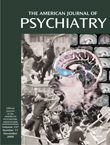Mental Disorders and the Use of Alternative Medicine: Results From a National Survey
Abstract
OBJECTIVE: The study examined the relationship between mental disorders and the use of complementary and alternative medicine. METHOD: Data from a national household telephone survey conducted in 1997–1998 (N=9,585) were used to examine the relationships between use of complementary and alternative medicine during the past 12 months and several demographic variables and indicators of mental disorders. Structured diagnostic screening interviews were used to establish diagnoses of probable mental disorders. RESULTS: Use of complementary and alternative medicine during the past 12 months was reported by 16.5% of the respondents. Of those respondents, 21.3% met diagnostic criteria for one or more mental disorders, compared to 12.8% of respondents who did not report use of alternative medicine. Individuals with panic disorder and major depression were significantly more likely to use alternative medicine than those without those disorders. Respondents with mental disorders who reported use of alternative medicine were as likely to use conventional mental health services as respondents with mental disorders who did not use alternative medicine. CONCLUSIONS: We found relatively high rates of use of complementary and alternative medicine among respondents who met criteria for common mental disorders. Practitioners of alternative medicine should look for these disorders in their patients, and conventional medical providers should ask their depressed and anxious patients about the use of alternative medicine. More research is needed to determine if individuals with mental disorders use alternative medicine because conventional medical care does not meet their health care needs.



